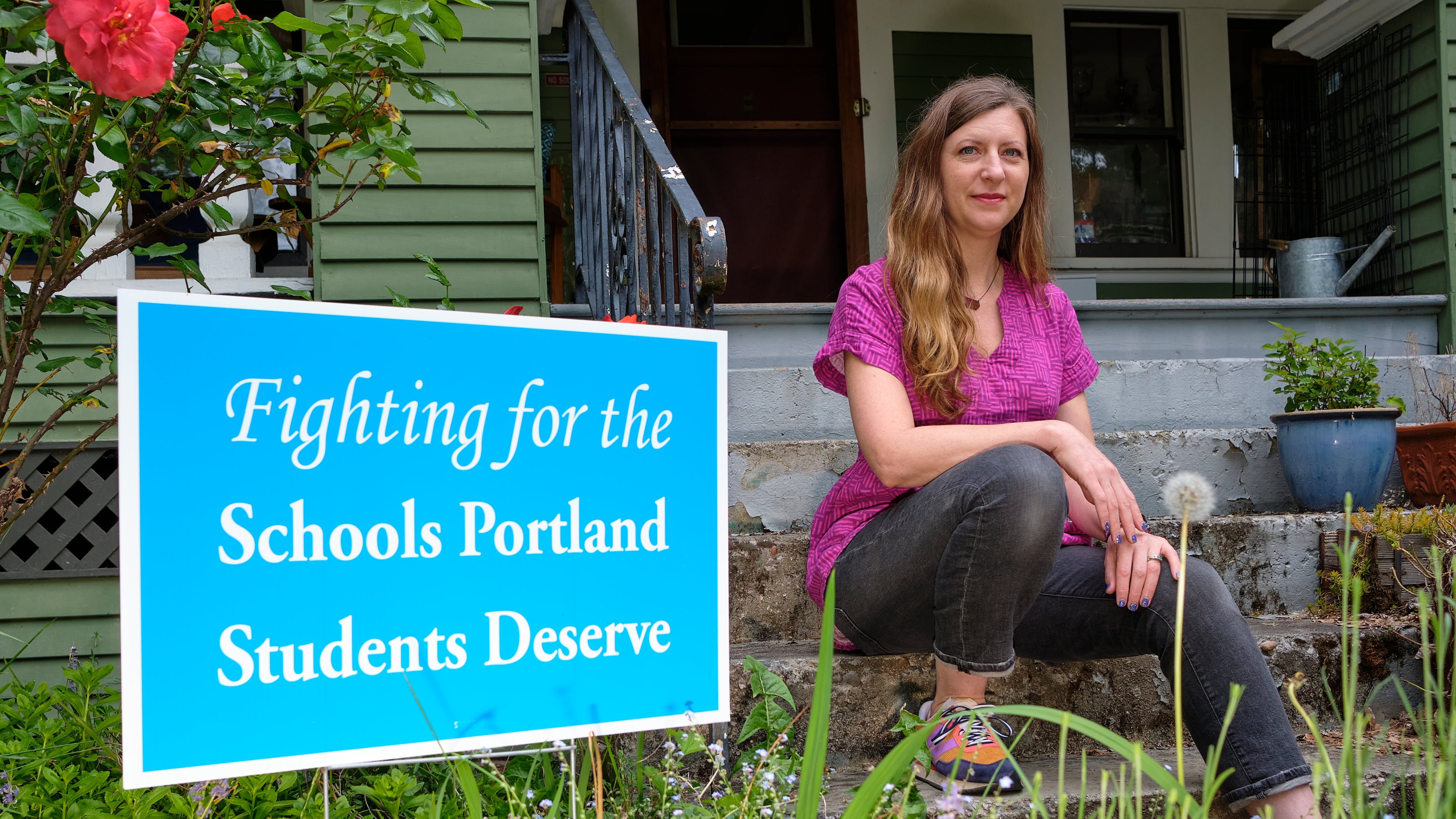The Fund for Portland Public Schools, now the district’s primary fundraiser, reported frustrating news in late September. It raised just $593,324 in the 2024–25 academic year, a far cry from the $3 million to $4 million a year typically raked in by the district’s previous model for fundraising—local school foundations in which parents largely collected donations to add staff at their own kids’ schools.
There’s been plenty of discussion about what the low number says about the School Board’s May 2024 decision to effectively eliminate LSFs by preventing foundations from spending on staff (“Sharing Is Caring,” WW, Oct. 1). But leaders at The Fund for PPS and advocates for the new model say dwelling on the past is the wrong strategy.
“I still really am excited about the opportunity that [The Fund] provides to bring our district together,” says Beth Cavanaugh, who led the effort to reform PPS’s system of foundations.
How to achieve that unity—and the money that goes with it—is an open question.
One big point of contention that will be important for The Fund to consider as it moves forward is to what degree it will try to engage parents who fundraised for LSFs versus embracing newer strategies for fundraising, including corporate partnerships.
Competing perspectives have emerged on this front. Some members of the School Board have placed blame for The Fund’s poor performance on not engaging enough parents with the expertise and connections required to raise hundreds of thousands of dollars. (The district’s chief of staff, Deborah Kafoury, says PPS worked to engage at least some of those families when developing its new system, but suggested the district could do so on a wider scale.) Other pro-Fund advocates have pointed to public testimony from April and May 2024 in which some LSF parents said they’d lose motivation to donate or assist with The Fund’s work if the School Board implemented policy changes.
“If people want to see that number come close to $4 million so we could pay for [more staff] in every school, then they need to get involved, and they need to make donations,” says Maya Pueo von Geldern, a parent advocate and Vernon K-8 Parent Teacher Association leader. “Some community members have said flat out they’re not going to, so I don’t know what they expect or why they’re acting like this is some surprise.”
The Fund’s board president, Jackie Wirz, who stepped into the role last month, thinks it wise to involve LSF parents in any fundraising strategy The Fund embraces. She says her goal is to engage with any parents who have frustrations in an attempt to get them on board. But she says The Fund also has powerful potential as a districtwide model, particularly with corporate sponsorships and events. Wirz points in particular toward upcoming fundraisers with the Portland Thorns and Portland Timbers.
Top of Wirz’s priority list is finding an executive director of The Fund for PPS, whom the The Fund’s board will hire in a search process stretching through November. The burden of raising funds during the 2024–25 transition year, Wirz says, largely fell on a couple of people. “We really need to make sure that there is a dedicated professional that is focused on executing,” she says. (Job postings for the position outline a one-year independent contracting role with the possibility of renewal or rate adjustments moving forward.)
Cavanaugh adds there were some complications with immediately rolling out The Fund’s work after the School Board changed the district’s policy, including leadership transitions and logistics to iron out, which slowed the transition period.
The Fund has set a cautious fundraising target for the upcoming year: $1 million for Champion PPS Schools, The Fund’s main districtwide campaign, which Wirz says would slightly outpace how much a parent advisory committee was able to allocate this year toward high-impact tutoring, among other initiatives. (Wirz clarifies that this year’s money from Champion, totaling $930,000 after the committee set aside some money for future fundraising, came from the PPS Parent Fund. That was a pool of money LSFs were required to earmark for at-need schools under the previous system.) The Fund will need to “understand the capacity of the community to fundraise” on both the corporate and individual giving levels, Wirz says.
“I think that’s going to inform the growth moving forward,” she says. “We should be able to rally and grow over time as we continue to repair and establish relationships.”
(With money from last year’s Parent Fund, The Fund was still able to allocate hundreds of thousands to high-impact literacy tutoring and a couple of other districtwide initiatives, though it’s far from the $4 million it would need to staff a half-time educational assistant at every school in the district, one of its stated goals.)
Von Geldern says another part of the goal for The Fund is to help open the minds of parents who’ve long concentrated only on their own children’s schools. She points toward The Fund’s literacy investments, which include some traditional LSF schools “that are not the schools that would have qualified for grants before.” Emphasizing districtwide connectedness, she says, has also helped The Fund see success engaging new parents in advocacy efforts in Salem for more school funding.
“There are parents who are seeing this policy change as a way to shift the mindset in their own schools and think outside the confines of their own buildings,” she says. “It’s these parents and new relationships forming that give me hope for working together for the greater good of all our kids.”

